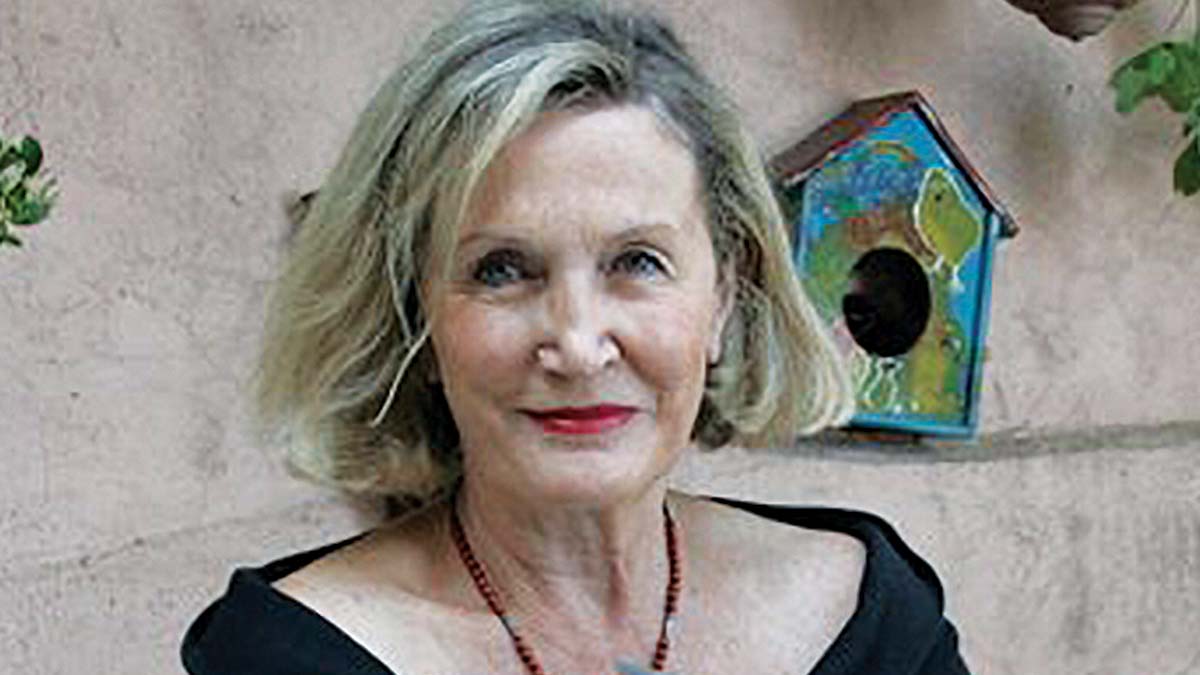AS I SEE IT
BY MARIANNE HERON
I’m enjoying a real sunshine feeling, not due to summer weather but to that warm sense when you are proud of your country. Ireland’s recognition of the State of Palestine together with Spain and Norway will hopefully be a stepping stone towards a two- state solution and peace between Palestine and Israel.
It may prompt other nations to follow Ireland’s example, adding to the 146 members of the United Nations which recognise the state of Palestine.
It won’t stop the current genocide being wreaked on Gaza though, where the Palestinian death toll is 35,000 and recently 50 were killed in an attack on a refugee camp in Rafa.
Nothing so far has been enough to stop Benjamin Netanyahu of his avowed attempt to wipe out Hamas, not the fact that his arrest is sought by the International Criminal Court as a war criminal, nor resounding international condemnation and urgent demands for a ceasefire.
Responding to Hamas’ horrific October 7 terrorist attack Netanyahu is blind to the immense damage being wreaked, not only on the innocent civilian population of ruined Gaza but on Israel itself. Far from getting rid of Hamas, the war and its atrocities will be an effective recruitment drive for Hamas and others bent on retaliation.
There is the wholesale damage the continuation of the genocide is wreaking on Israel’s standing in the world, where the dehumanising of Palestinians repeats the worst atrocities in the long history of colonisation.
History has a lot to answer for in the troubled fate of Palestine. In 1917 the Balfour Declaration gave British support for the establishment of a homeland for the Jewish people in Palestine without ever specifying how much territory that homeland should occupy. The obligations of the 1919 British Mandate of Palestine were, Lloyd George pointed out to establish that home “without detriment to the rights of the Arab population”.
George Habib Antonius, author of The Arab Awakening, while recognising the horrors of anti- Jewish Nazism, raised concerns about the fate of religious co-existence in Palestine in the face of Zionist colonisation. In 1938 he wrote prophetically: “ No code of morals can justify the persecution of one people in an attempt to relieve the persecution of another.”
In 1948 Winston Churchill’s fears, that “the Jewish State armed to the teeth, given the menace of war” by surrounding Arabs would lead to confrontation, were realised in 1948 when with the declaration of the State of Israel and the War of Independence during which three quarters of a million Palestinians fled their country. In 1967 in the Six Day’s War territory was redrawn when Israel took Gaza and the West Bank.
Attempts find a two-state solution stretch as far back as 1948 with endless hostilities and peace talks in between without lasting agreement being reached. When the war on Gaza ends, as it inevitably must, what hope is there of finding effective means of persuasion to bring about a solution? Considering the way that verbal condemnation has had no effect on Israel and that neither the US nor Europe have been prepared to take the measures which might have stopped Israel’s war, is there any hope of resolution?
Israel is the largest recipient of US foreign aid and the way that the US has continued to supply Israel with arms and finance while asking futilely for a ceasefire seems counter intuitive to me. The EU have been unwilling to apply more effective persuasive measures, like cutting trade agreements with Israel, to stop the carnage. Money talks but it hasn’t been allowed to speak to end the conflict.
There are major challenges to be faced when addressing how to arrive at a country shared justly between Palestine and Israel. There is the question of the estimated five million Palestinian refugees who may wish to return to their country, the issue of where the lines of Palestinian and Israeli territories are to be drawn, and an ending of Israeli occupied territories in the West Bank and Gaza. Aside from that, there is the huge task of rebuilding Gaza and its ruined facilities and homes and how that should be financed.
Can neighbours, where there has been enmity, killing and dispossession, become friends?
In Ireland you could say that was achieved through the long drawn-out peace process and where thoughtful people are working towards unity, not just demanding it.

















